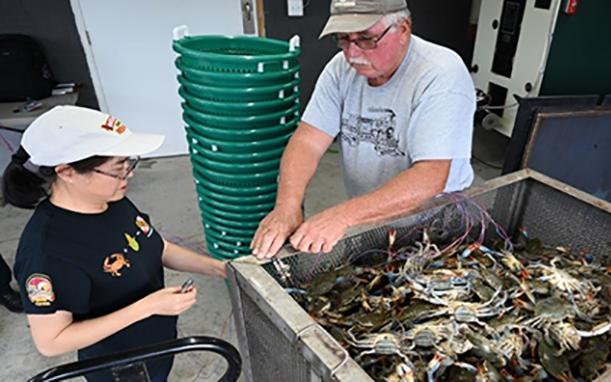Maryland crab industries are composed of numerous, small, independently-operated companies that are mostly located in rural areas. The majority of Maryland crab processors are poorly positioned to adapt to globalization, changing markets and seafood supplies. There were over 50 crab picking plants in Maryland in the 1990s, but the number has declined by over 50%. According to the maryland Department of Health, about 20 crab picking plants are operating each year. These industries rely heavily on technical support, education and outreach service from the University of Maryland Extension to remain current and competitive.
The Maryland Crabmeat Quality Assurance and Inspection Program is a voluntary quality management program jointly supported by the University of Maryland Extension (UME), the Maryland Department of Agriculture Seafood Marketing Program, and the Chesapeake Bay Seafood Industry Association. Each year, Maryland crab processors have the opportunity to join this program. Processors who participate in this crabmeat quality program undergo evaluations and assistance beyond the regular inspections performed by health regulators.
This program primarily conducts plant inspections and sanitation audits, crabmeat microbiological monitoring tests at an ISO 17025 accredited laboratory, seafood safety education and training, and other technical assistance as needed (i.e. crab cooking retort thermometer accuracy verification, crab cooking, and crabmeat pasteurization validation studies). Dr. Liu administrates this program and oversees all program activities including funding management, program protocol developments and updates, technical support, data collection, analyses and reporting to program participants and the management team. Results of the biweekly sanitation information and crabmeat microbiological quality monitoring results are mailed to each participant. The information generated allows processors to identify procedures that most effectively control spoilage and pathogenic bacteria.
Maryland crab processors have used this quality management program as an effective sales tool to access premium markets. Being a member of the QC program demonstrates a company’s commitment to quality and safety, and differentiates Maryland products from the competition.
